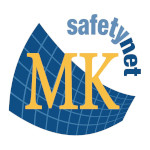It is always difficult for former and current MKs and their families to know when to report abuse, and to whom the report should be directed. The first step is to report it to local law enforcement and child protection services, according to the laws in the country in which the abuse was committed, where the perpetrator and the victim(s) are now living and in the state or province in which the mission agency is incorporated.
Another step is to report the abuse to the mission agency / denomination which employs the alleged abuser and the victim. Often there are multiple victims and abusers over many years, and an Independent Investigation is required. Historically victims and their families have always needed to lobby for these Independent Investigations. Due to the desire to protect their organization and because of the costs involved, mission organizations and denominations have resisted truly independent investigations.
It is often very difficult for victims to determine who the people on the proposed Investigation Team are, and what their relationship is to the mission community they are investigating. The relationship of the investigators to mission leadership generally determines who will be interviewed during the investigation as well as who will receive interim and final reports.
Victims are able to ensure the investigation into allegations of abuse is independent from mission/denomination leadership by using the following criteria. It is, of course, important that victim(s) require that this information be provided to them before agreeing to any proposed Investigation Team recommended by the mission. The Terms and Conditions the Investigation Team signs with the mission organization(s) should also include these criteria in order to ensure the cooperation of the organization(s) in providing needed information.
- Members of the Investigation Team or Recommendation Team should not currently be missionaries or employees of a mission agency or denomination. Mission agencies should disclose both past and present relationships the recommended Investigation Team members have had with mission agencies. If they were employed as missionaries or in other capacities within the mission community in the past, it is important for survivors to know the status of their current relationship to those mission agencies.
- The scope of the investigation should include all known vulnerable individuals to whom the alleged perpetrator had access. This includes contacting these potential victims to inform them of the investigation, and providing them with the opportunity to be a part of the investigation. Parents of potential victims should also be contacted regarding the investigation and be invited to report to the Investigation Team.
- The original final report and recommendations of the Independent Investigations should be made available to:
Victims
People who reported abuse
Families of victims
Leadership of the mission agency/denomination
Past and present supporting churches / individuals
Leadership of the national church in the country where the abuse occurred
It is important to extend this information to local church leadership in the country where the abuse occurred because, in many cases, mission personnel have access to national children. - All information identifying the victims who reported the abuse should be removed from the report before it is distributed.
- When criminal conduct has been determined, a report should be made to the police in the jurisdiction in which the perpetrator is living as well as national church leadership and police in the country in which the abuse occurred.
Tamara Rice-Writer and Editor
Beverly Shellrude Thompson – MK Safety Net Canada, President Emeritus
June 25, 2014
Checklist for Evaluating Current Investigation Teams
| 1) All credible allegations of criminal abuse are reported to | |||
| Yes | No | ||
| a) Appropriate law enforcement in the country in which the abuse occurred | |||
| b) Appropriate law enforcement in the country in which the perpetrator lives |
| 2) When criminal conduct has been determined by the independent investigation team, a report is made to | |||
| Yes | No | ||
| a) Appropriate law enforcement in the country in which the abuse occurred | |||
| b) Appropriate law enforcement in the country in which the perpetrator lives | |||
| c) All known past and current churches and individuals who provide financial support (indirectly or directly) to the perpetrator(s) | |||
| d) The national church leadership where the abuse occurred |
| 3) Are members of the investigation team | |||
| Yes | No | ||
| a) Currently members of a mission organization or denomination? | |||
| b) Previously employed by mission agencies?* | |||
| c) Currently under contract with a mission agency? |
| Yes | No | ||
| 4) Does the investigation include all the known vulnerable people the alleged perpetrator had access to? | |||
| a) Are all known potential victims informed of the investigation and provided an opportunity to be a part of the investigation? | |||
| b) Are the parents of all potential victims also contacted by the investigation team and invited to report to the investigation team? | |||
| 5) Is the original report and recommendations of the independent investigation team made available to | |||
| Yes | No | ||
| a) The victims | |||
| b) The people who reported the abuse | |||
| c) The families of victims | |||
| d) Leadership of the mission agency/denomination | |||
| e) All known past and present supporting churches/individuals of the abuser | |||
| f) The leaders of the national church in the country in which the abuse occurred |
| Yes | No | ||
| 6) Is all information identifying the victims who reported abuse removed from the report before it is distributed? |
*If they were previously employed by a mission agency or denomination, what is their current relationship with that organization?
